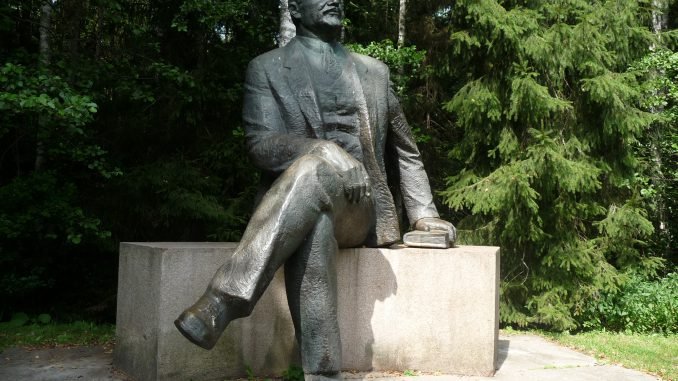
In her words, a decision on the future of the monument should be made before the municipal council’s meeting scheduled for next Monday.
“If we remove monuments to Lenin and Stalin, we should probably not have these monuments, as well. Let them rest in peace, their memory can probably be honored in other ways, if needed. Times and attitudes change, we are behind of what is unacceptable. I do not think all monuments should be torn down. But since there was this act of vandalism, we see it could happen in the future,” the mayor told BNS.
Lunskienė said she had only learned about the Soviet-era monument in Grybinė village, some 5 km from Marijampolė, earlier this week following police report about the Soviet and Nazi symbols painted on the monument.
Rimantas Lekeckas, the top official at Šunskai, a small town in the municipality of Marijampolė, told BNS he had spoken with the management of Grūto Park of Soviet-era sculptures and they agreed to accept the vandalized monument. Lunskienė confirmed that the possibility of handing over the monument to the Grūto Park would be considered.
The mayor also noted that interest in the monument had been expressed by officials of the Russian Embassy to Lithuania.
Over 20 agents of Soviet repressive bodies and Soviet activists were ambushed and killed by anti-Soviet resistance fighters in Grybinė on June 4, 1946. Historians say that several partisans died during the exchange of fire, too.
